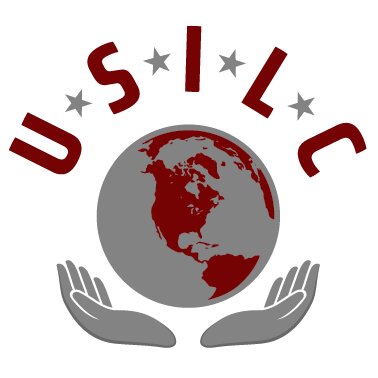Best Immigration Lawyers in Alaska
Share your needs with us, get contacted by law firms.
Free. Takes 2 min.
Or refine your search by selecting a city:
List of the best lawyers in Alaska, United States
United States Immigration Legal Questions answered by Lawyers
Browse our 4 legal questions about Immigration in United States and read the lawyer answers, or ask your own questions for free.
- Changing my temporary residency card in Portugal to permanent!
- Good day! I have been living in Portugal for 4 years and next year I need to change my temporary residency to permanent one. My questions: What documents do I need? How long does it take! When is the starting of 5 years? How much does it cost? I am... Read more →
-
Lawyer answer by mohammad mehdi ghanbari
Hello and greetings!Thank you for reaching out. Regarding your permanent residency application in Portugal, here are some important points: You will generally need your valid passport, proof of address in Portugal, your current residency permit, a clean criminal record (from...
Read full answer - Changing my temporary residency card in Portugal to permanent!
- Good day! I have been living in Portugal for 4 years and next year I need to change my temporary residency to permanent one. My questions: What documents do I need? How long does it take! When is the staring of 5 years? How much does it cost? I am... Read more →
-
Lawyer answer by mohammad mehdi ghanbari
Hello and greetings!Thank you for reaching out. Regarding your permanent residency application in Portugal, here are some important points: You will generally need your valid passport, proof of address in Portugal, your current residency permit, a clean criminal record (from...
Read full answer - How do I get certificate or acceptance?
- US is asking for certificate of acceptance for my son born in Ulsan 13years ago for the purpose of our immigrant visa. He was not registered at the local district office at the time as we were told as non nationals, it was not mandatory. I don’t know how to... Read more →
-
Lawyer answer by mohammad mehdi ghanbari
Hello, good morningTo obtain a Certificate of Acceptance for your son born in Ulsan, you will need to report the birth to the local government office (Si, Gu, Eup, or Myeon) corresponding to the place of birth. Even though the...
Read full answer
United States Immigration Legal Articles
Browse our 2 legal articles about Immigration in United States written by expert lawyers.
- H-1B Visa Outlook 2026 US: Wage Based Selection & Fees
- The US immigration system is statute-driven (mainly the Immigration and Nationality Act) and administered by USCIS, the Department of State, CBP, and the Department of Labor, each controlling different stages of the process. For March 2026 H-1B cap filings, the government is openly considering shifting from a random lottery to... Read more →
- Golden Visas: Residency by Investment in the United States
- Key Takeaways The United States immigration system is governed primarily by the Immigration and Nationality Act (INA) and administered by USCIS, DOS, CBP, ICE, DOL, and EOIR. Most immigrants enter through family, employment, humanitarian protection, or investment routes, each with its own forms, fees, timelines, and eligibility rules. For investors,... Read more →
About Immigration Law in Alaska, United States
Immigration law in Alaska, as in every U.S. state, is governed primarily by federal law. However, living in Alaska presents unique circumstances due to its geographic isolation, proximity to Canada and Russia, and its diverse population, including Alaska Natives, refugees, and immigrants from various nations. Whether you are seeking to reunite with family, pursue work opportunities, become a permanent resident, or address issues related to citizenship, understanding how immigration law applies in Alaska is essential for a safe and lawful stay in the United States.
Why You May Need a Lawyer
Navigating the U.S. immigration system can be complex and time-consuming, especially if you are unfamiliar with legal processes or face unique challenges related to living in Alaska. Common situations where people may require legal help include:
- Filing for visas, green cards, or citizenship
- Defending against deportation or removal proceedings
- Seeking asylum, refugee status, or humanitarian relief
- Dealing with expired visas or unlawful presence
- Reuniting with family members through sponsorship
- Changing or adjusting immigration status
- Understanding work eligibility and employment authorization
- Facing criminal charges that may impact immigration status
- Appealing immigration decisions
- Interacting with U.S. Customs and Border Protection at Alaska’s ports of entry
An immigration lawyer can help you understand your rights and obligations, represent you before immigration authorities, and provide clarity on rapidly changing laws and policies at both federal and local levels.
Local Laws Overview
Although federal law dictates most immigration policies, local and state regulations in Alaska can influence your experience. Alaska does not have its own immigration system, but its enforcement practices and state services may affect immigrants.
Key aspects to consider include:
- Alaska’s Department of Motor Vehicles sets identification and driver’s license requirements that may affect immigrants’ ability to obtain state-issued IDs
- Local law enforcement agencies collaborate with federal agencies on certain immigration matters, but generally focus on public safety, not immigration enforcement
- Access to public services, such as healthcare and education, may depend on your immigration status
- Alaska has a history of supporting refugees and diverse communities, but resources may be more limited than in larger states
- Because Alaska shares a maritime border with Russia and lengthy land borders with Canada, crossings are highly regulated and require proper documentation
Consulting with an attorney familiar with Alaska’s landscape and procedures is vital to ensure your compliance and safety.
Frequently Asked Questions
What is the general process for immigrating to Alaska?
You must follow U.S. federal immigration procedures, such as applying for a visa, green card, or citizenship through U.S. Citizenship and Immigration Services. Once approved, you can live in Alaska as your destination.
Is the immigration process different in Alaska compared to other states?
The process is governed by federal law and is generally the same as elsewhere in the United States, though local logistics, access to resources, and proximity to border crossings can present unique challenges.
Can I seek asylum if I am in Alaska?
Yes. Asylum applicants in Alaska must follow U.S. law, file the appropriate forms, and attend interviews or hearings, usually at regional offices or videoconference. An attorney can help you throughout this process.
Where are immigration hearings held in Alaska?
Alaska lacks a permanent immigration court. Hearings often take place via videoconference or may require travel to Seattle, Washington. Your attorney will advise you on specific procedures.
How does proximity to Canada and Russia affect immigration enforcement?
Border areas are closely monitored by U.S. Customs and Border Protection. Unauthorized crossings are illegal and subject to strict enforcement. Always have proper documentation when traveling internationally.
Can I work in Alaska if I am an immigrant?
Yes, with valid work authorization. This may be through a specific visa, green card, or employment authorization document. Employers must verify your eligibility to work in the U.S.
What Alaska-specific documents or identification might I need?
You may need an Alaska state ID or driver’s license. Requirements vary based on your status and documentation. Check with the Alaska Division of Motor Vehicles and consult your lawyer.
Are there organizations in Alaska that can help with immigration issues?
Yes. Nonprofits, such as Alaska Institute for Justice, Catholic Social Services, and Alaska Legal Services Corporation, may offer support, education, and legal referrals to immigrants.
I am facing deportation. What should I do?
Contact an immigration lawyer immediately. Do not sign any documents without understanding the consequences. Ask for legal representation and know your rights.
How can I bring my family members to Alaska?
You may be able to sponsor family through family-based visas or petitions, following U.S. immigration law. The process requires documentation and can be lengthy, so start by consulting with an immigration attorney.
Additional Resources
If you need further guidance or support with your immigration situation in Alaska, consider these resources:
- U.S. Citizenship and Immigration Services (USCIS) for forms and official updates
- Alaska Institute for Justice for legal aid and advocacy
- Catholic Social Services Refugee Assistance & Immigration Services for support programs
- Alaska Legal Services Corporation for pro bono legal help
- Your local legal aid or community center for education and referrals
- Alaska Division of Motor Vehicles for state ID/license information
Next Steps
If you or a loved one needs legal assistance with immigration in Alaska, take these steps:
- Gather all relevant documents, such as visas, passports, notices, and identification
- Write down your questions and concerns before meeting with a lawyer
- Find a qualified immigration attorney or trusted nonprofit organization in Alaska
- Schedule an initial consultation to discuss your case
- Follow all legal advice carefully and keep track of deadlines
- Stay informed about changes in U.S. immigration laws and local requirements
Immigration can be stressful and complicated, but with support and accurate information, you can make well-informed decisions for your future in Alaska.
Lawzana helps you find the best lawyers and law firms in Alaska through a curated and pre-screened list of qualified legal professionals. Our platform offers rankings and detailed profiles of attorneys and law firms, allowing you to compare based on practice areas, including Immigration, experience, and client feedback.
Each profile includes a description of the firm's areas of practice, client reviews, team members and partners, year of establishment, spoken languages, office locations, contact information, social media presence, and any published articles or resources. Most firms on our platform speak English and are experienced in both local and international legal matters.
Get a quote from top-rated law firms in Alaska, United States — quickly, securely, and without unnecessary hassle.
Disclaimer:
The information provided on this page is for general informational purposes only and does not constitute legal advice. While we strive to ensure the accuracy and relevance of the content, legal information may change over time, and interpretations of the law can vary. You should always consult with a qualified legal professional for advice specific to your situation.
We disclaim all liability for actions taken or not taken based on the content of this page. If you believe any information is incorrect or outdated, please contact us, and we will review and update it where appropriate.
Browse immigration law firms by service in Alaska, United States
Alaska, United States Attorneys in related practice areas.
Browse immigration law firms by city in Alaska
Refine your search by selecting a city.













